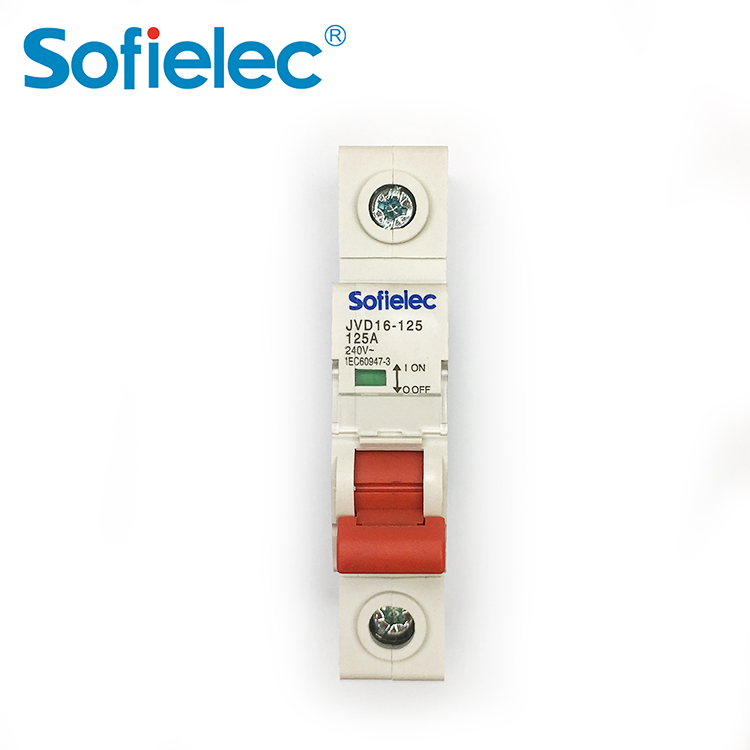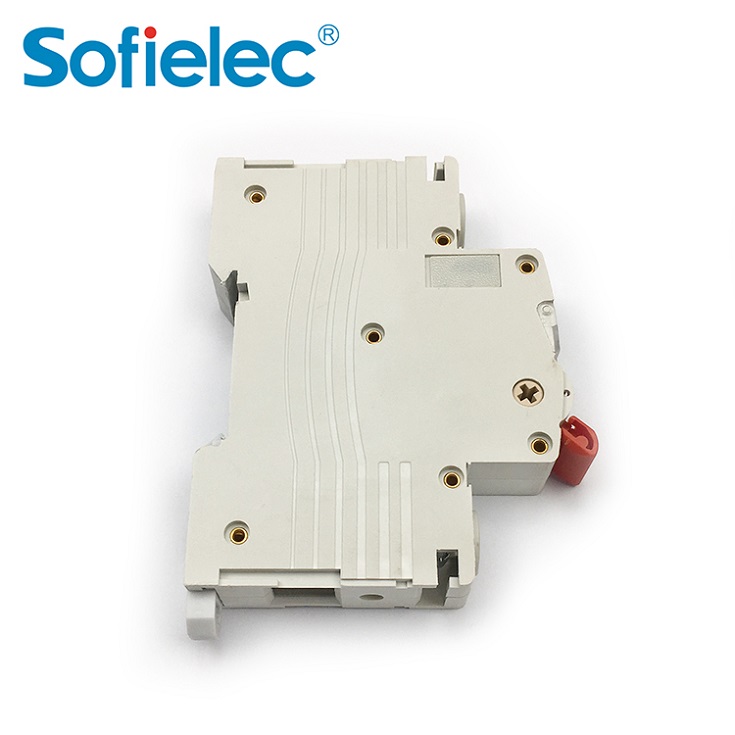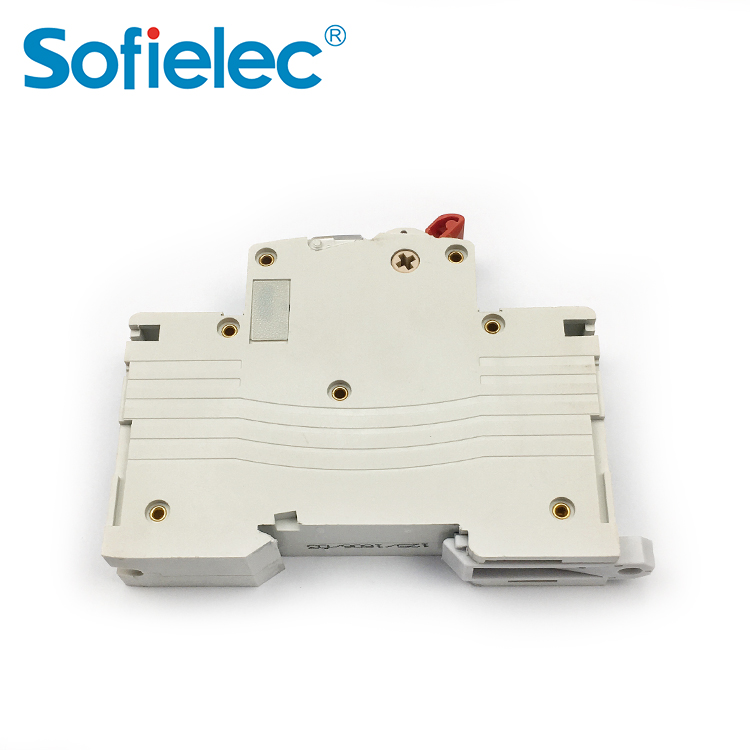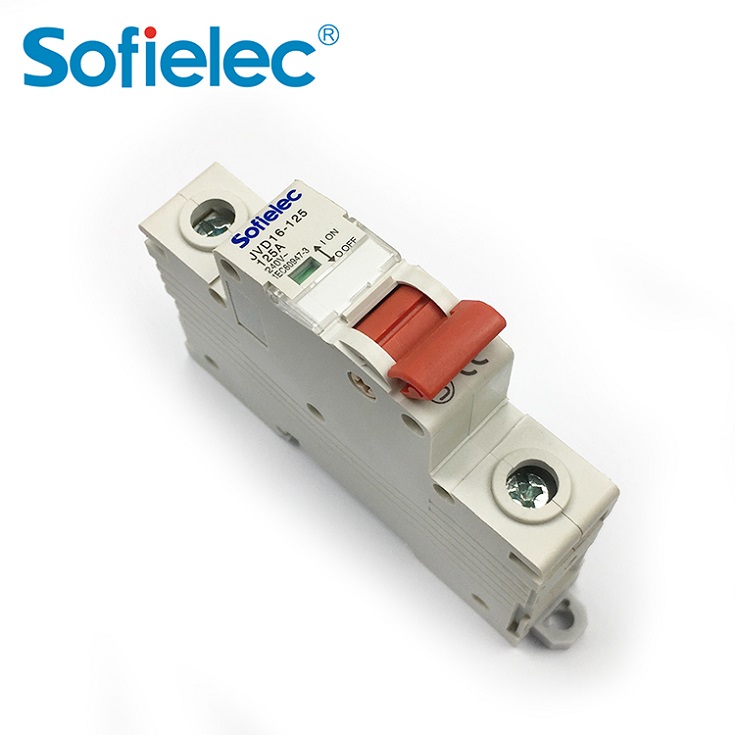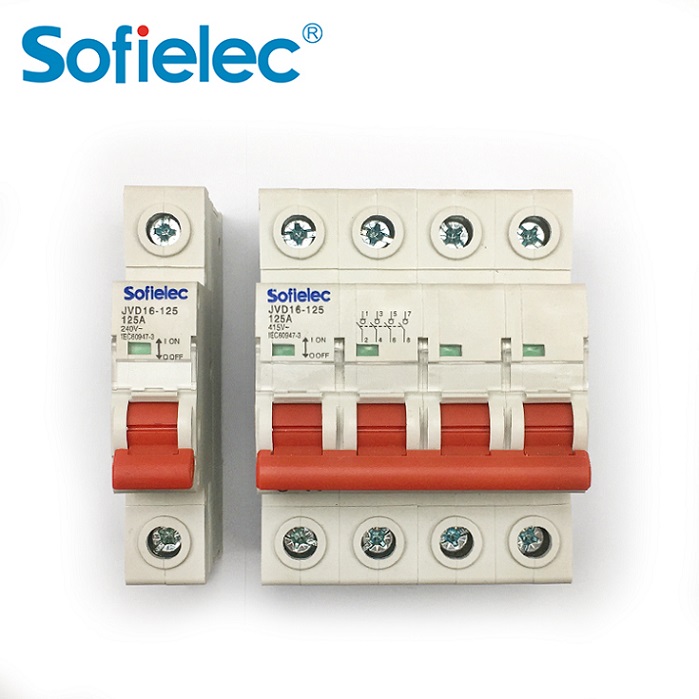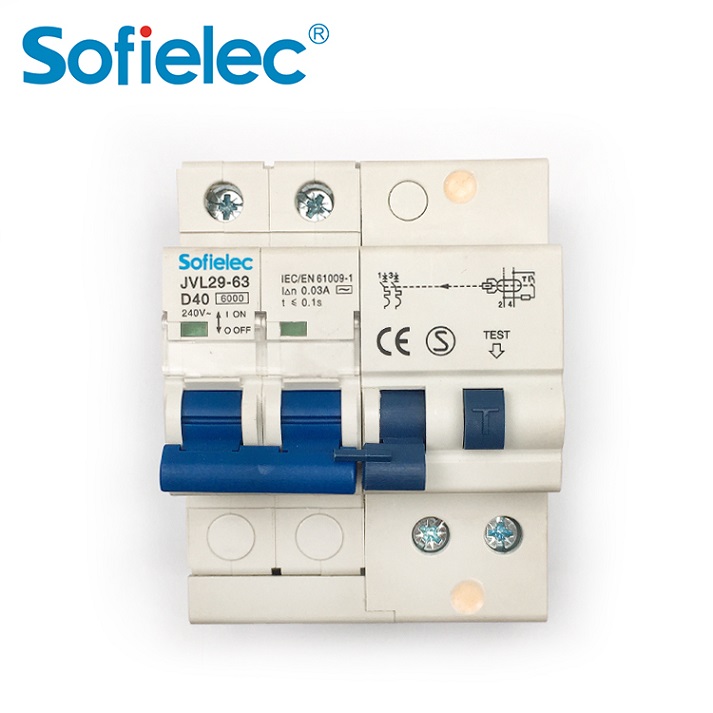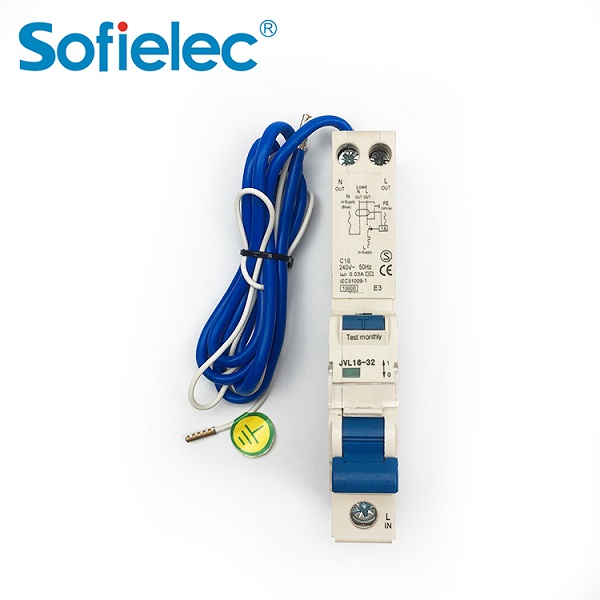| Categories | DIN rail isolator |
| Pole No | 1,2,3, 4 |
| Rated current(A) | 63, 80, 100, 125 |
| Rated voltage | AC 230/400V |
| Rated frequency | 50/60Hz |
| Rated short-circuit making capacity | 6kA |
| Rated withstand current | 2kA within 1sec |
| Electro-mechanical endurance | 10000 cycles |
| Connection terminal | Screw terminal |
| Installation | On symmetrical din rail 35mmo |
| Terminal Connection Height | H=19mm |
Technical Data
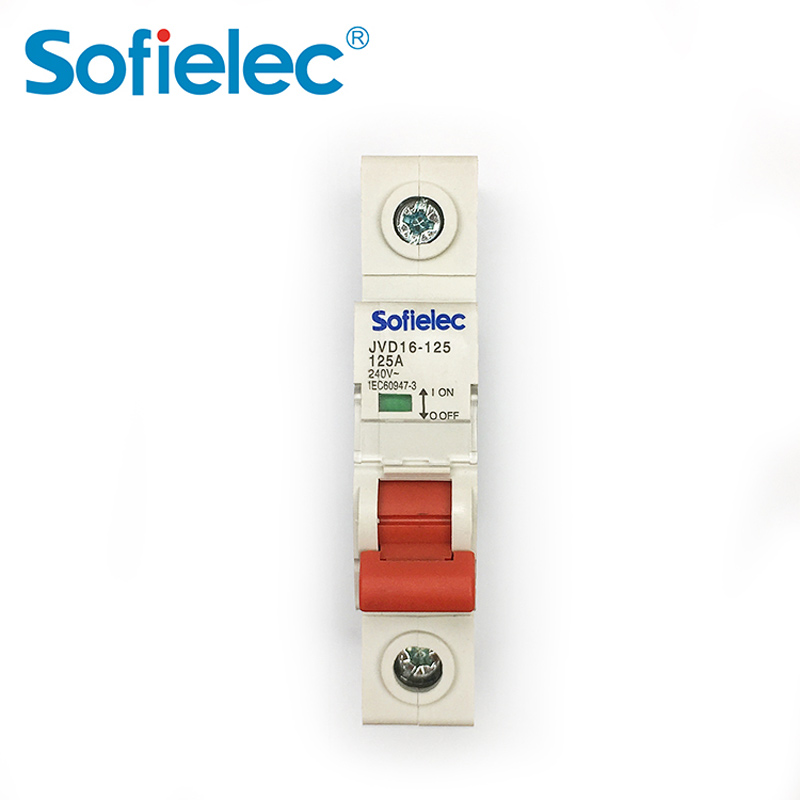
|
l Pole No.: 1, 2, 3, 4 |
|
l Rated current(A): 63, 80, 100, 125 |
|
l Rated voltage: AC 230/400V |
|
l Rated frequency: 50/60Hz |
|
l Rated short-circuit making capacity: 6kA |
|
l Rated withstand current: 2kA within 1sec |
|
l Electro-mechanical endurance: 10000 cycles |
|
l Connection capacity: Rigid conductor 35mm ² |
|
l Connection terminal:Screw terminal |
|
l Installation:n symmetrical din rail 35mm |
|
l Terminal Connection Height: H=19mm |
Construction and Feature
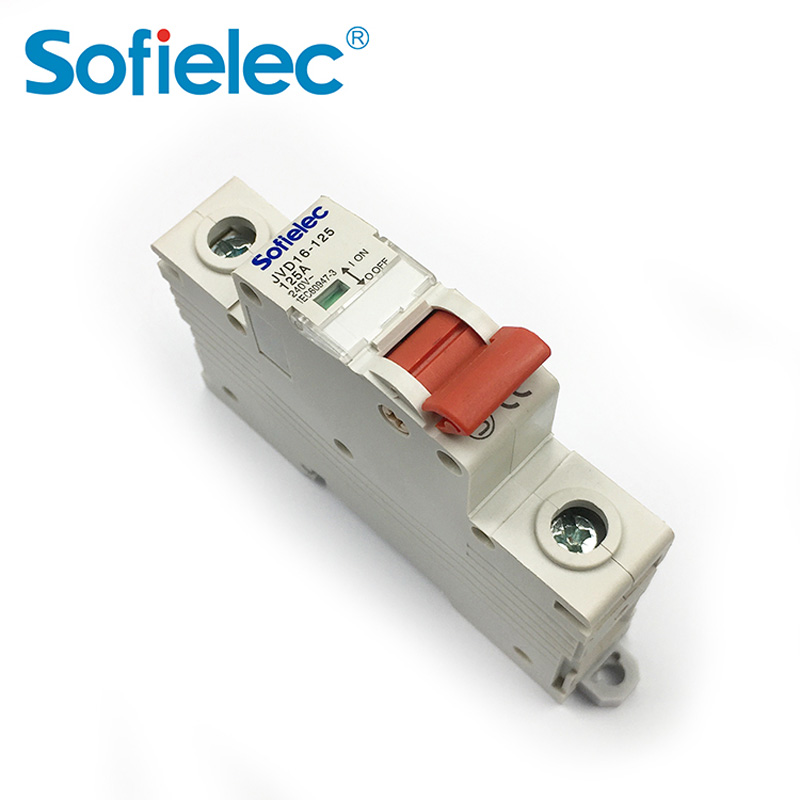
Capable of switch electric circuit with load
Adaptable to padlock device
Contact position indication
Capable of quickly releasing stored energy operation
Highlighted of high making and breaking capacity
High short-circuit current withstand capacity
Used as main switch for household and similar installation
Overall & Installation Dimensions
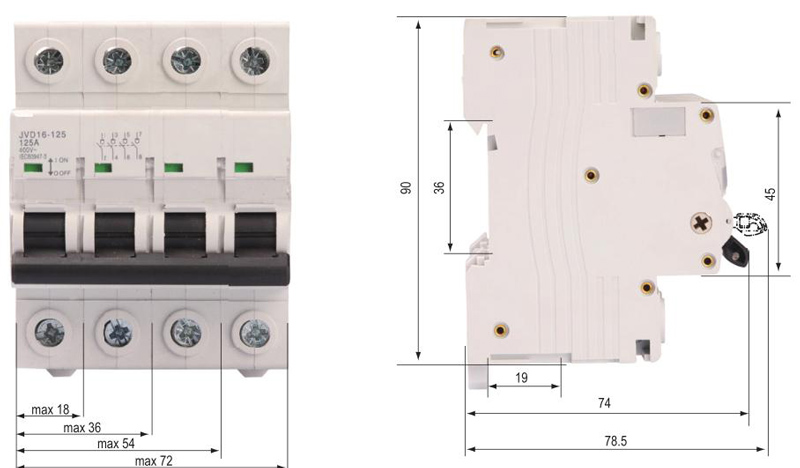
Wiring Diagram
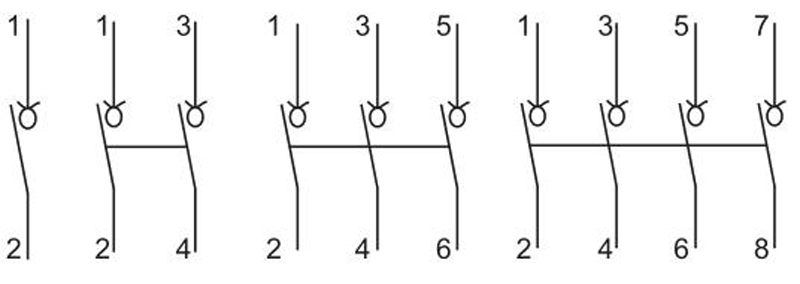
> What are the four types of timer switches?
A time switch, often simply referred to as a timer, is a device that automatically controls when an electrical circuit is turned on or off. It's like a programmable ...
> Can You Replace a 10 Amp Breaker with a 20 Amp Breaker?
Replacing a 10-amp circuit breaker with a 20-amp one without a thorough professional evaluation is extremely dangerous and poses a significant fire hazard. Let's ana...
> What Makes a Circuit Breaker Essential for Home Electrical Safety?
Home electrical safety ranks high on every homeowner’s priority list, yet many overlook the quiet workhorse that prevents crises before they start. This device acts ...
> What Scenarios Require the Use of a Residual Current Circuit Breaker?
Electrical safety is a top priority in daily life and work, yet many people are unsure when to use a device that guards against electric shock. This article explains...

